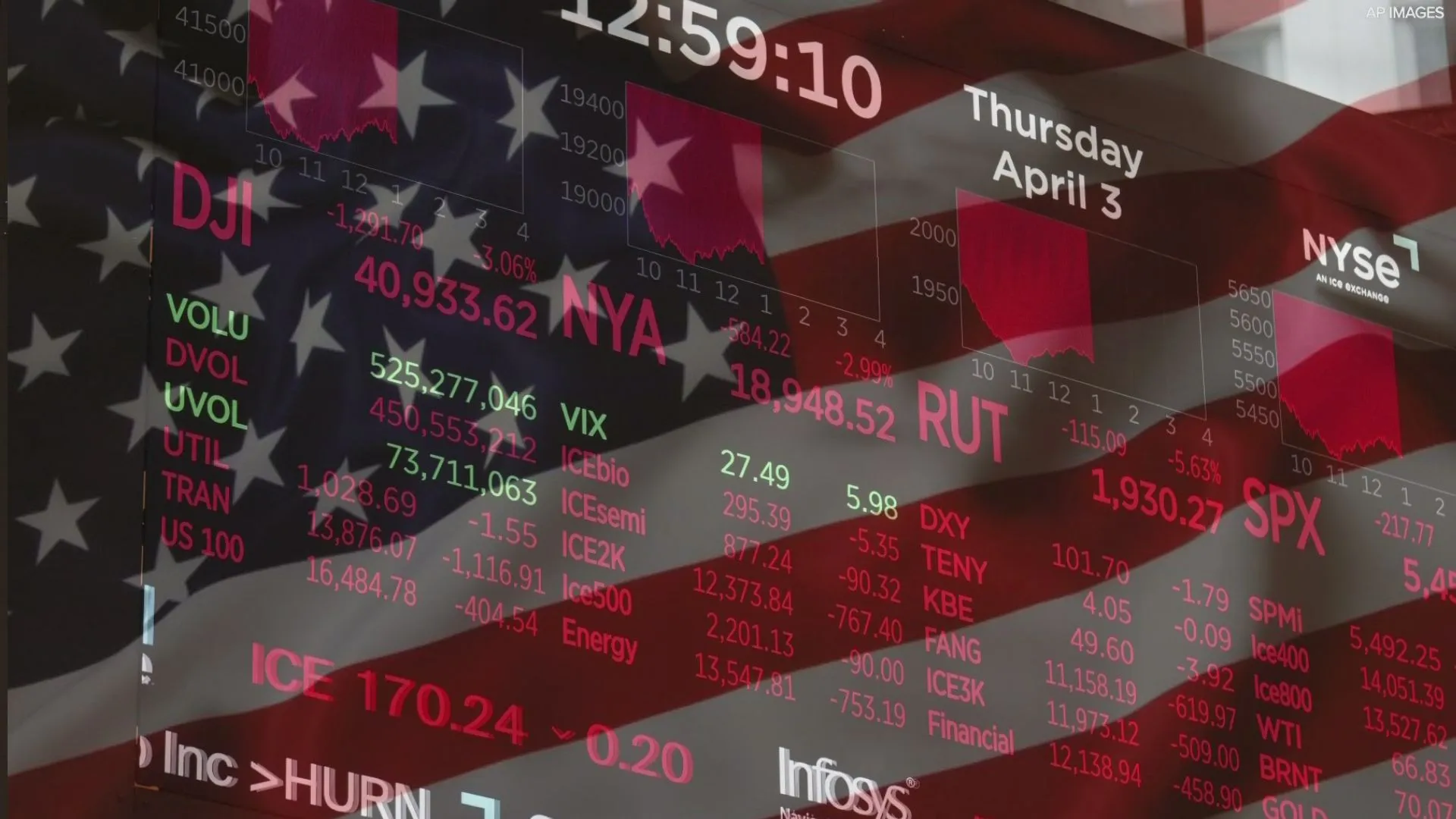U.S. financial markets declined sharply on Friday as investors responded to President Donald Trump’s drastic new tariffs on imports from all over the world. The Dow Jones Industrial Average dropped 2,054 points, one of the sharpest declines since the COVID-19 crash. The S&P 500 also dropped 5.7%, with the Nasdaq composite dropping 5.5%, according to the Associated Press.
The S&P 500 is currently off about 16% from its high in February, fueling recession fears.
Brief Glance of Strength on Robust Jobs Report
Markets staged a brief rally after a much stronger-than-expected U.S. jobs report released last month showed that hiring was stronger than anticipated. The positivity, however, was fleeting as investor worries on rising global trade tensions trumped the economic news.
“The world has changed, and the economic conditions have changed,” BlackRock Chief Investment Officer of Global Fixed Income Rick Rieder said, as reported by AP.
China Strikes Back with Retaliatory Tariffs
Beijing quickly retaliated against Trump’s tariffs by unveiling its own list of 34% tariffs on all U.S. products, starting April 10. The action is a mirror of the American tariff increase and ramps up the current trade war between the world’s two biggest economies.
Responding to the news, Trump attacked China on his Truth Social site:
“CHINA PLAYED IT WRONG, THEY PANICKED – THE ONE THING THEY CANNOT AFFORD TO DO!”
Recession Fears Loom Large
Experts caution that the longer the tariffs are in effect, the greater the chances of the U.S. economy sliding into a recession. While some still harbor the expectation that Trump may soften the tariffs after getting concessions, others feel the harm may prove irreversible.
Trump, though, seemed unfazed. He admitted Americans could experience “some pain” from the tariff conflict, comparing it to a surgical operation:
“It’s like surgery. You need to endure some pain to recover,” he said, reiterating his aim of restoring manufacturing jobs to the U.S.
American Companies Take Big Hit
Shares of companies with close connections to China experienced some of the biggest declines. DuPont shares dropped 11.7% after China opened an antitrust probe into one of its subsidiaries.
Likewise, GE Healthcare—whose Chinese revenue accounted for 13.8% of its total last year—fell by 12.7%.






















